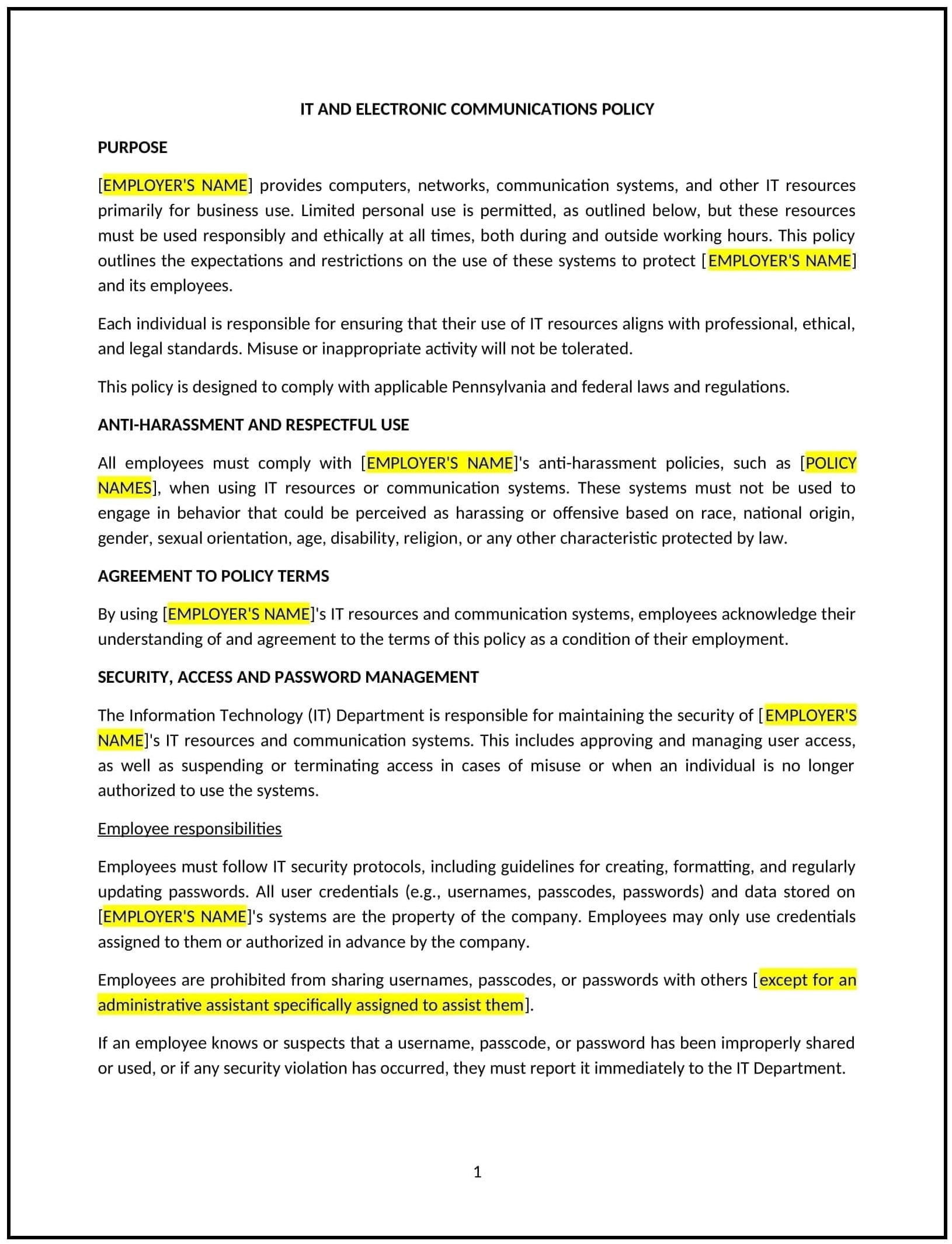IT and electronics communication policy (Pennsylvania): Free template
Got contracts to review? While you're here for policies, let Cobrief make contract review effortless—start your free review now.

Customize this template for free
IT and electronics communication policy (Pennsylvania)
This IT and electronics communication policy is designed to help businesses in Pennsylvania establish clear guidelines for the use of technology, communication systems, and electronic devices in the workplace. Whether managing company-owned hardware, employee internet usage, or email communication, this template provides rules to ensure security, productivity, and compliance with Pennsylvania and federal regulations.
By using this template, businesses can safeguard digital assets, maintain professionalism, and reduce risks associated with misuse of technology.
How to use this IT and electronics communication policy (Pennsylvania)
- Define acceptable use: Clearly outline acceptable and prohibited uses of company IT resources, such as computers, email, and internet access.
- Address security measures: Include guidelines for maintaining cybersecurity, such as password policies, data encryption, and secure access to systems.
- Establish privacy expectations: Specify the extent to which employee use of IT resources may be monitored, in compliance with Pennsylvania laws.
- Include device management: Provide rules for the use of company-owned devices and bring-your-own-device (BYOD) practices, including responsibilities for maintenance and security.
- Reflect Pennsylvania-specific considerations: Tailor the policy to align with state regulations, industry-specific practices, or workforce needs.
Benefits of using an IT and electronics communication policy (Pennsylvania)
A well-structured IT and electronics communication policy supports security and efficiency. Here's how it helps:
- Enhances security: Protects company systems and data from unauthorized access, breaches, or cyber threats.
- Promotes productivity: Encourages appropriate use of technology, reducing distractions and misuse during work hours.
- Ensures compliance: Aligns with Pennsylvania and federal laws regarding data protection and employee privacy.
- Clarifies expectations: Sets clear rules for technology use, minimizing misunderstandings and disputes.
- Addresses local needs: Considers Pennsylvania-specific industry practices and legal requirements, ensuring relevance and compliance.
Tips for using an IT and electronics communication policy (Pennsylvania)
- Communicate the policy: Share the policy with employees during onboarding and provide training on IT security and acceptable use.
- Monitor usage: Implement monitoring tools to track IT resource usage, ensuring compliance with the policy while respecting employee privacy rights.
- Update technology: Regularly review and upgrade IT systems to maintain security and compatibility with the policy.
- Provide support: Offer employees access to IT support for troubleshooting and assistance with company systems and devices.
- Review periodically: Update the policy to reflect changes in Pennsylvania laws, technological advancements, or business needs.